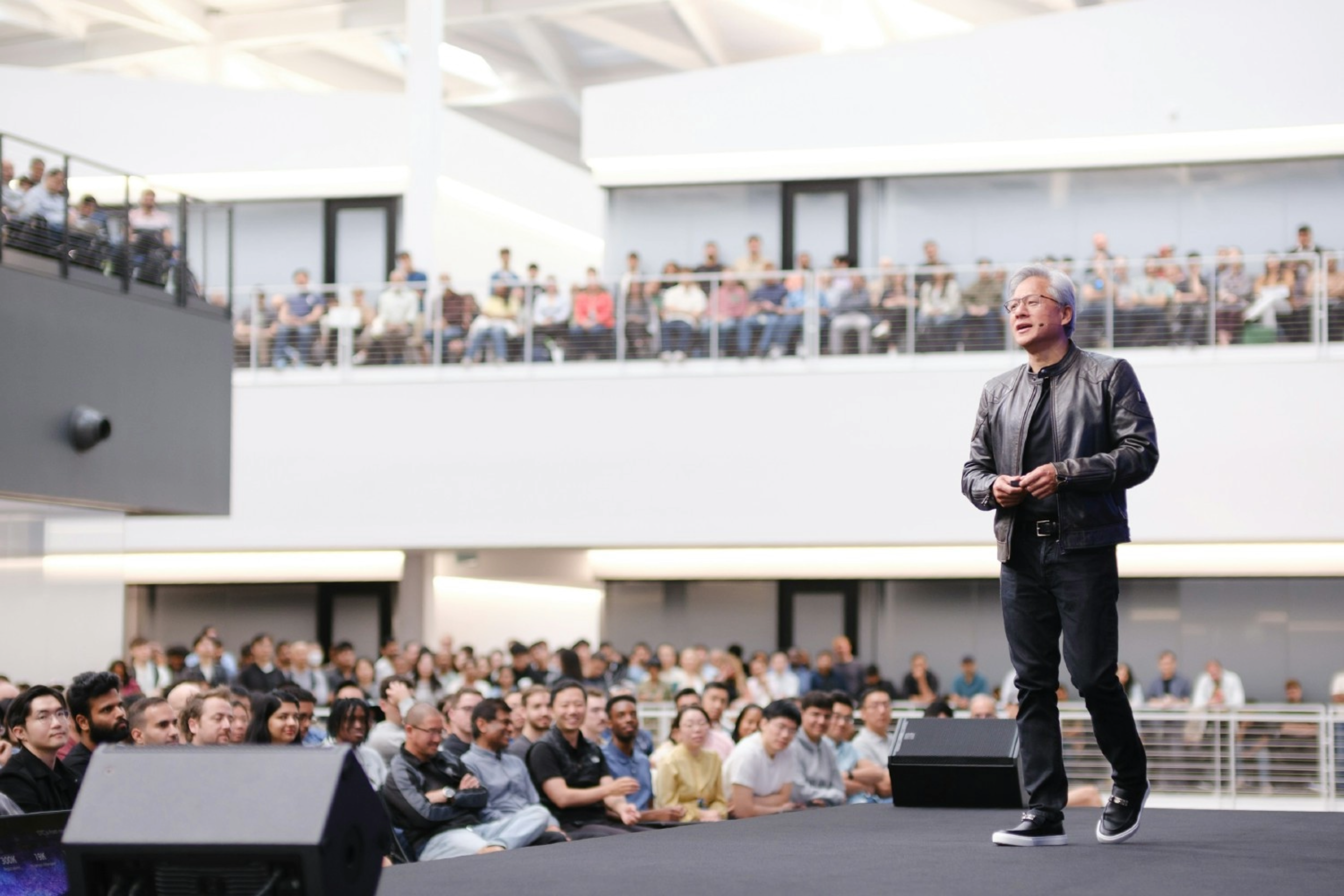Best Workplaces, Caring , High-trust leadership
Here’s what vaults the AI-chip maker into the No. 2 spot on the Fortune Best Workplaces for Parents list in 2025.
When trying to find the most supportive companies for working parents, the conversation often begins and ends with parental leave.
In the U.S., parents are not guaranteed paid leave when welcoming a new child. The Family and Medical Leave Act (FMLA) only guarantees parents who work for a qualifying company can take unpaid leave without losing their job.
On average, new moms take 10 weeks of maternity leave in the U.S., and average 10.6 paid sick days and 11.6 days of paid personal time, according to a National Institute of Health study. Less than 5% of American fathers take more than two weeks of parental leave.
By contrast, NVIDIA offers 22 weeks of paid leave for mothers giving birth and 12 weeks of paid leave to non-birthing new parents, including dads and parents welcoming a child through surrogacy or adoption. After paid parental leave ends, employees are also eligible for Flex Time, which provides eight weeks of working on a flexible schedule to help employees transition back to work.
These policies are just some of the reasons NVIDIA is No. 2 on the Fortune Best Workplaces for Parents™ List for 2025.
Such generosity is less surprising for a company worth more than $4 trillion. Yet, it’s the ethos of NVIDIA, where CEO Jensen Huang repeats his belief that taking care of employees is the No. 1 priority for the company.
It’s why you can’t replicate NVIDIA’s success just by matching their parental leave offering or replicating their programs that support parents.
“You can't just create a program; you have to create an ethos that says we are going to support families,” says Beau Davidson, vice president of employee experience at NVIDIA.
Its commitment to help employees have families and build their lives drives decision-making at NVIDIA. Generous paid leave is one example, but you can also find extra flexibility for parents returning to work, coverage for surrogacy and adoption cost, back-up childcare coverage, and robust well-being resources.
One big lesson NVIDIA has learned? “Adopting a one-size-fits-all approach is not very productive,” Davidson says. “There are lots of cases out there where employees need additional support, parents with autistic children or parents of children with special needs, for example. That’s where NVIDIA really doubles down.”
As a result, NVIDIA employees can give their best effort, or as the company likes to say “do their life’s work.”
Caring for employees builds trust
Stories of how the company cares for employees are invaluable vectors of trust that spread by word of mouth. The organic result is increased levels of trust.
“One of the things that we constantly hear from employees at NVIDIA is ‘I know the company will do the right thing,’” Davidson says. And there are countless examples of the company going above and beyond to care for employees affected by wildfires in California or caught up in global conflict in Ukraine or the Middle East.
“We just reach out and help — and that creates an environment that feeds upon itself, where people know the company is going to treat our employees well when situations happen, big and small,” Davidson says.
For parents, that extra care might be how the company supports someone with the high costs of multiple rounds of IVF treatments, or the comparable support for adoptive parents. “We don't create second class citizens of people who are adoptive parents,” Davidson says. “We don't create second class citizens for people who have children that are born through surrogacy. We aim to treat everybody on a comparable level.”
The result? Nealy nine in 10 NVIDIA employees who are parents say managers avoid playing favorites (86%) compared to just under half of working parents at a typical workplace who say the same (48%). Nine in 10 parents at NVIDIA believe that the organization deeply cares about their lives (93%) and 89% say management cares about their lives outside of work.
These experiences foster trust, a crucial driver of business performance. Great Place To Work research shows that companies with higher levels of trust also have higher levels of productivity, innovation and agility — resulting in more revenue and stronger stock market performance.
At NVIDIA, 93% of parents report giving extra effort — driving higher levels of productivity. That’s 50% higher than the 62% of parents who say the same at a typical U.S. workplace.
The impact of managers
The generosity of NVIDIA’s programs is one thing, but the true differentiator for parents is often in their relationship with their manager.
For example, when parents return to work from parental leave, they get eight weeks of “flex time” where they work out a schedule with their manager to ramp up to their former workload. The success of that arrangement is deeply dependent on having an understanding and cooperative manager.
“The most important thing is ensuring that we have a culture where managers and employees talk with one another to allow for that flexibility,” Davidson says. To ensure that employees have consistent experiences with their manager, the team uses regular surveys like the Great Place To Work® Trust Index™ survey, but also targeted pulse surveys throughout the year on things like flexibility or recognition.
“Whatever question you ask to employees, I've learned that they're always going to tell you what's on their mind,” Davidson says. And when a need gets communicated? NVIDIA’s commitment to helping parents guides them to try and find a way to say “Yes.”
“As I sit here in my role, my job primarily is to make sure that we're taking care of our employees,” Davidson says. “If you do right by your employees, they're going to do right by your company.”
Think your company belongs on this list? Start here.
Get recognized for your culture
Gain accolades for your workplace environment and attract top talent who share your values.







